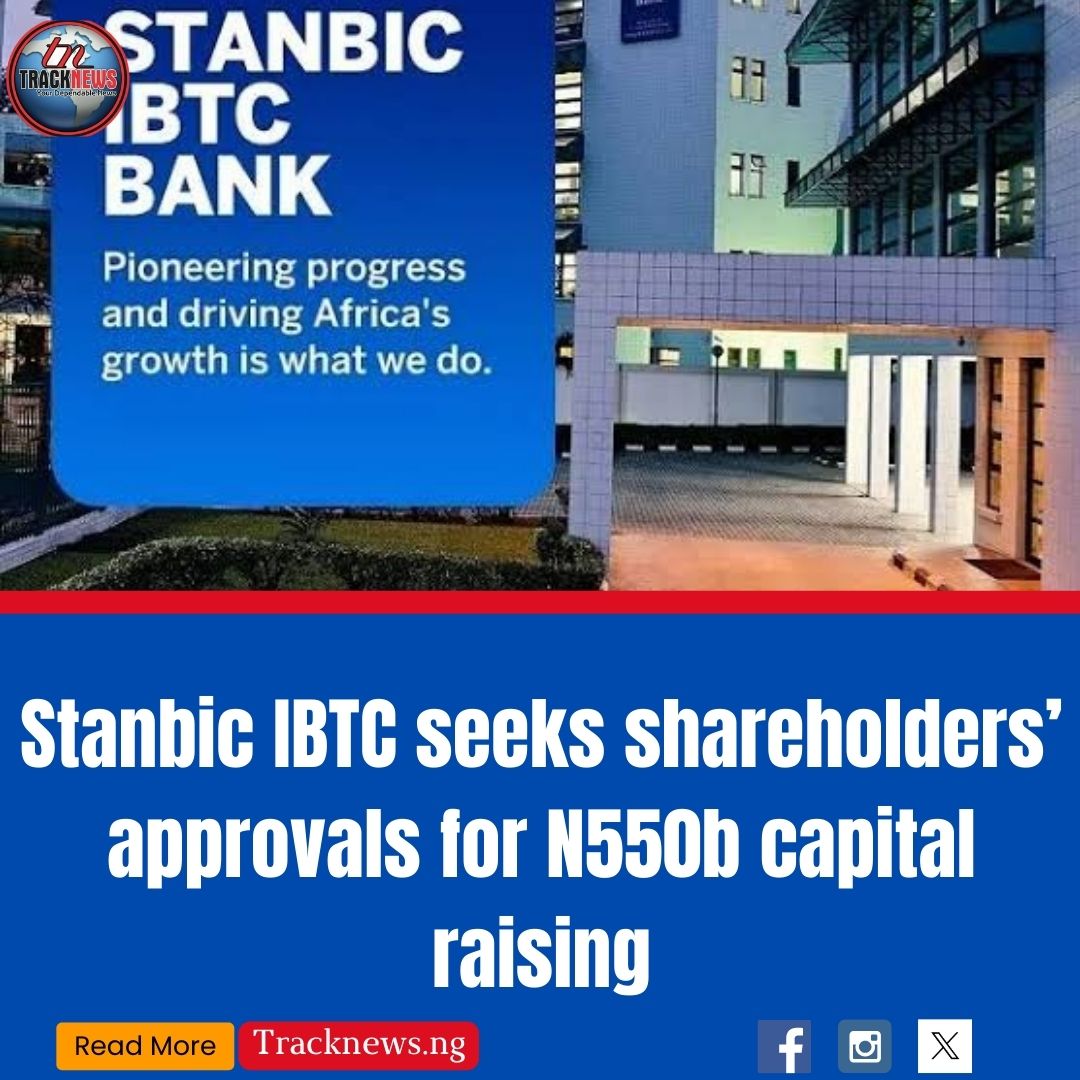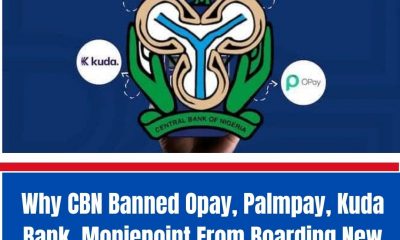News
Stanbic IBTC seeks shareholders’ approvals for N550b capital raising

Stanbic IBTC Holdings Plc has launched a N550 billion capital raising process aimed at boosting both equity and debt capital of the group.
Shareholders of Stanbic IBTC will at the annual general meeting scheduled for next month consider and approve resolutions authorising the board of the company to raise N150 billion in new equity funds and N400 billion in debt capital.
The board of the company is seeking shareholders’ mandate to “to raise additional equity capital of up to N150 billion by way of a rights issue or offer for subscription on such terms, tranches, conditions and dates as may be determined by the directors”.
Shareholders are also expected to grant waivers allowing the board to offer unsubscribed shares first to interested existing shareholders and later, if remaining, to interested investors on similar terms to the rights issue or offer for subscription.
READ ALSO: Depositors Jittery As Stanbic IBTC, Sterling Bank Lead In Contravention Of Banking Regulations
The N150 billion capital raising is expected to increase the share capital and share premium of the company to about N260 billion, above the new minimum capital requirement of N200 billion share capital and share premium for national bank. Stanbic IBTC currently has share capital and share premium of N109.25 billion.
The company is also seeking shareholders’ approval to reaffirm the company’s dividend conversion scheme under which shareholders may be permitted to elect to receive new ordinary shares in the company, credited as fully paid, instead of the whole or any part of any cash dividends declared by the company. Such authorisation for dividend conversion shall subsist until the earlier of five years from the date of the passing of the resolution and the date on which the annual general meeting of the company to be held in 2029 occurs.
Under the resolutions, directors will be authorised to issue such new ordinary shares and make such allotments of shares or approve any allotment proposals as may be deemed necessary and expedient to give effect to the dividend conversion scheme, subject to obtaining the approvals of the relevant regulatory authorities.
Following the completion of the additional equity capital raise, the issued and paid up share capital of the company will be increased from N6.478 billion divided into 12.957 billion ordinary shares of 50 Kobo each to a maximum of up to N8.25 billion by the creation of up to 3.54 billion ordinary shares of 50 Kobo each.
Under the debt capital raising, the company is seeking approval “to establish a debt issuance programme in an amount of up to N400 billion or such foreign currency equivalent thereof as the directors may consider appropriate, for the purpose of issuing debt securities-to include senior unsecured or secured, subordinated, convertible, preferred, equity linked or such other forms of debt obligations, by way of public offering, private placement, additional tier one or tier two capital raising, investments, book building process or any other method, in tranches of such amounts and at such dates, coupon or interest rates and upon such terms and conditions as may be determined by the directors, subject to the grant of all required approvals from the relevant regulatory authorities”.
The CBN had last month released its circular on review of minimum capital requirement for commercial, merchant and non-interest banks. The apex bank increased the new minimum capital for commercial banks with international affiliations, otherwise known as mega banks, to N500 billion; commercial banks with national authorisation, N200 billion and commercial banks with regional license, N50 billion.
Others included merchant banks, N50 billion; non-interest banks with national license, N20 billion and non-interest banks with regional license will now have N10 billion minimum capital. The 24-month timeline for compliance started yesterday and ends on March 31, 2026.
Under the new recapitalisation framework, banks have three broad options of injection of new equity capital, mergers and acquisitions and upgrade or downgrade of licence authorisation.
Under the recapitalisation plan, banks are required to submit step-by-step activities, transactional details, instruments and other options for their recapitalisation not later than April 30, 2024. The plans will cover the two-year compliance period ending March 31, 2026.
-

 Politics5 days ago
Politics5 days agoSouth-South Govs Meet In Yenagoa, Urge FG To Review Power Situation
-

 Politics5 days ago
Politics5 days agoFormer IYC Scribe Congratulates Hon. Maxwell Ebibai on Reappointment as Bayelsa Commissioner for Finance.
-

 Politics6 days ago
Politics6 days agoKogi gov, Ododo used immunity to protect Yahaya Bello from EFCC arrest – Oshiomhole
-

 Entertainment6 days ago
Entertainment6 days ago‘Disrespectful’ – Mr Macaroni slams Wizkid for shading Don Jazzy
-

 Business5 days ago
Business5 days agoWhy CBN Banned Opay, Palmpay, Kuda Bank, Moniepoint From Boarding New Customers
-

 Niger Delta5 days ago
Niger Delta5 days agoRE: PROTEST AGAINST PAP BOSS DR DENNIS OTUARU, AN UNNECESSARY DISTRACTION THAT SHOULD NOT BE TAKEN SERIOUSLY.
-

 Politics5 days ago
Politics5 days agoHon. Alapala Felicitates with Commissioners for successful inauguration and thank the governor for their appointments.
-

 News2 days ago
News2 days agoAttack on nurse: Enugu Assembly moves to regulate activities of masquerades




